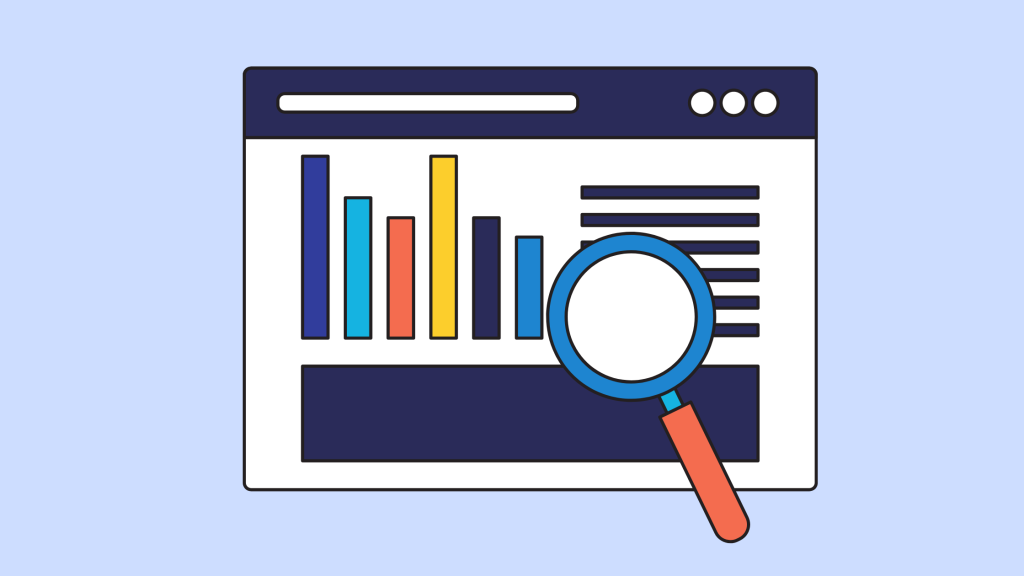A-Z Guide on Off-Page SEO
Table of Contents
Ever wonder why some websites appear at the top of search results, while others seem hidden away? The answer goes beyond your website itself – it involves off-page SEO.
This guide explains what off-page SEO is and how it can help your business rank higher in search results. You might be surprised to learn that links from other websites to yours are actually one of the most important factors Google considers when ranking websites!
But off-page SEO isn’t just about links. We’ll explore everything you need to know to improve your search ranking and attract more visitors through the power of off-page SEO.
So, let’s begin.
What is Off-page SEO?
Off-page SEO services refers to efforts to improve a website’s unpaid search engine rankings without making changes on the website itself. Common tactics include link building, guest posting, and social media marketing.

The goal of off-page SEO is to get search engines and users to see your site as more trustworthy and authoritative. And its factors like backlinks, reviews, and recommendations help search engines see your site as reputable. This can lead to better visibility in search results.
One of the best ways to build your credibility in the eyes of search engines is to focus on Experience, Expertise, Authoritativeness, and Trustworthiness (E-E-A-T)—a concept Google’s Quality Raters use when evaluating search results and providing feedback to improve future algorithm updates.
However, it must be noted that off-page SEO alone cannot help your site rank. You’ll have to combine it with technical SEO and on-page SEO tactics to achieve overall success.
Why is Off-page SEO Important?
With Google constantly changing its algorithm, the SEO community still believes that off-page SEO plays a significant role in a web page’s ability to rank. Here are the most compelling reasons to know the importance of off-page SEO:
1. Improved Search Engine Rankings
Off-page SEO signals, particularly backlinks from authoritative and relevant websites, endorse your website’s quality. Search engines, like Google, value these endorsements and use them as an SEO ranking factor. The more high-quality backlinks you have, the higher your website will likely rank in search engine results.

2. Increased Website Visibility
Off-page SEO techniques, such as social media marketing and influencer outreach, can significantly expand your website’s reach and visibility. Imagine your website as a small shop hidden in a quiet street. Without proper promotion, how will people find it?

Promoting your content and brand on external platforms can attract a larger audience, generate more organic traffic, and enhance your online presence.
3. Building Online Reputation
Off-page SEO involves managing your online reputation by monitoring and responding to customer reviews, feedback, and mentions. The assessment criteria outlined in Google’s Quality Rater Guidelines heavily depend on a website’s reputation outside of its own pages to determine its level of trustworthiness.

By actively addressing customer concerns and maintaining a positive reputation, you can establish trust and credibility with search engines and users, leading to higher search page rankings and increased brand recognition.
4. Enhanced User Engagement
Off-page SEO activities, such as social media marketing, encourage user engagement and interaction with your brand. This can increase website visits, longer sessions, and higher conversions.

When users actively engage with your content and share it with others, it amplifies your online visibility and improves your website’s authority.
Fundamentals of Off-page SEO
Off-page SEO focuses on activities outside your website that influence your search ranking. These activities help search engines understand your website’s credibility, authority, and popularity. Here’s a breakdown of the fundamental factors:
1. Ranking Metrics
Understanding ranking metrics is the foundation of off-page SEO. Search engines such as Google use complex algorithms to determine where your website ranks for specific keywords. Some key metrics include:
- Backlinks: Links from other websites act as “votes of confidence” and show search engines your site is valuable.
- Domain Authority: A score that predicts how well a website will rank. It’s influenced by factors like backlink quality and age.
- Relevance: Ensure your content is relevant to the keywords you target.Analyze your target audience’s search intent to craft SEO-friendly content that truly answers their questions and solves their problems.
- User Engagement: Metrics like time-on-site, bounce rate, and pages per session indicate if users find your content valuable.
2. Link Building
Link building is the process of acquiring backlinks from other websites. Here’s why it’s important and how to do it effectively:
- Authority Signal: High-quality backlinks from relevant sites (in your niche) boost your domain authority, which can improve rankings.
- Referral Traffic: Backlinks can bring relevant, targeted traffic to your site from other sources, increasing your potential customer base.
- Guest blogging: Write high-quality guest articles for relevant websites with backlinks to your own content.
- Broken Link Building: Find websites with broken links on relevant topics and suggest your own content as a replacement.
- Resource Page Linking: Identify websites with resource pages in your niche and reach out to have your relevant content listed.
- Create Link-worthy Content: Focus on creating unique, informative, and valuable content that people naturally want to share and link to.
3. Content Marketing
Content marketing focuses on creating and sharing valuable content to attract and engage an audience. This indirectly improves your off-page SEO in several ways:
- Natural Link Attraction: High-quality, informative content that people find genuinely helpful and interesting is more likely to be shared and linked to naturally.
- Brand Building: Great content builds brand awareness, trust, and authority, impacting brand signals. Consistent, valuable content establishes you as an expert in your field.
- Types of Content: Explore various engaging content formats to cater to different audience preferences. This could include blog posts, infographics, videos, case studies, webinars, eBooks, and more. Regularly update your content to stay relevant and fresh.
4. Brand Signals
Brand signals refer to how search engines perceive your brand’s online presence. These signals influence your authority and trustworthiness in the eyes of search engines:
- Social Media: A strong social media presence with engaged followers, content sharing, and positive brand sentiment reinforces your brand and strengthens your online footprint.
- Online Mentions: Positive mentions of your brand on forums, news sites, industry publications, and relevant blogs build your credibility and show search engines that others recognize and value your brand.
- Brand Searches: When people directly search for your brand name it indicates positive brand awareness and establishes your brand as a recognized entity in your niche.
5. Local SEO
Local SEO is essential for businesses with a physical location or serving a specific geographic area. Here’s how it impacts your off-page efforts:
- Google My Business: Claiming and optimizing your Google My Business listing is crucial for appearing in local search results, getting discovered by potential customers in your area, and managing your online presence.
- Local Citations: Ensure consistent business information (Name, Address, Phone Number) across online directories, review sites, and local business listings. This improves your local visibility and helps search engines understand your location and service areas.
- Local Reviews: Encourage positive customer reviews on Google My Business, Yelp, and other relevant local platforms. Positive reviews build trust, improve search ranking, and encourage others to choose your business.
6. Events and Reviews
Events and reviews contribute to your online reputation and can positively influence rankings. Here are the following activities that can help you leverage this ideal off-page activity:
- Industry Events: Participating in relevant conferences, trade shows, and online events can build brand awareness, connect with potential partners and customers.It will generate positive online mentions and can lead to backlinks and further strengthen your online presence.
- Customer Reviews:Positive reviews across review sites and industry-specific platforms boost your credibility, social proof, and trust. They also send positive signals to search engines about your reputation.
- Review Responses: Proactively responding to reviews, both positive and negative, demonstrates your commitment to customer satisfaction. Respond promptly, professionally, and address any concerns raised in negative reviews.
7. Online Reputation Management (ORM)
ORM involves actively managing your online reputation. It ensures positive information outweighs negative sentiment and protects your brand image:
- Monitoring: Track mentions of your brand across the web using social listening tools to be aware of both positive and negative sentiment. This allows you to address any issues promptly.
- Addressing Negative Issues: Respond promptly and professionally to negative reviews or feedback. Acknowledge the customer’s concerns, offer solutions, and demonstrate your commitment to resolving the issue.
- Proactive Reputation Building: Encourage positive reviews from satisfied customers by providing excellent service and exceeding expectations. Share customer testimonials and success stories to showcase positive experiences.
Off-page SEO is about building long-term authority and trust in the eyes of search engines and your audience. So, always focus on ethical and sustainable strategies to build a strong online presence and improve your website’s visibility and search ranking.
How does eSearch Logix Deploy Off-page SEO Strategies?
Understanding the fundamentals of off-page SEO empowers you to take control of your online presence. However, implementing an effective off-page SEO strategy can be time-consuming and require specialized expertise. This is where professional SEO companies like eSearch Logix can offer valuable assistance.
Here’s a glimpse into how eSearch Logix approaches off-page SEO services:
- Comprehensive Analysis: Our process begins with a thorough analysis of your website, target audience, and industry landscape. This includes evaluating your current backlink profile, analyzing competitor strategies, and identifying relevant keyword opportunities.
- Customized Strategy Development: Based on the analysis, we develop a tailored off-page SEO strategy that aligns with your overall business objectives. This strategy prioritizes tactics that cater to your specific niche and target audience.
- Content Creation and Outreach: Our team of experienced writers creates high-quality, informative, and engaging content that resonates with your target audience. We then leverage our expertise and established relationships to secure relevant backlinks from high-authority websites in your industry.
- Brand Building and Promotion: We actively promote your brand across various online platforms, including social media, industry forums, and relevant online communities. This helps build brand awareness, generate positive online mentions, and strengthen your brand signals.
- Local SEO Optimization: For local businesses, we implement targeted local SEO strategies such as optimizing your Google My Business listing, managing local citations, and encouraging positive local reviews.
- Ongoing Monitoring and Reporting: We continuously monitor your website’s performance and track the effectiveness of our off-page SEO efforts. We provide you with regular reports that showcase progress, identify areas for improvement, and ensure transparency throughout the process.
By partnering with eSearch Logix, you gain access to a team of experienced SEO professionals who can help youefficiently implement a comprehensive off-page SEO strategy.Drive qualified traffic and attract potential customers to your websiteachieve your digital marketing goals with our off-page SEO services.Contact eSearch Logix today for a free consultation.







